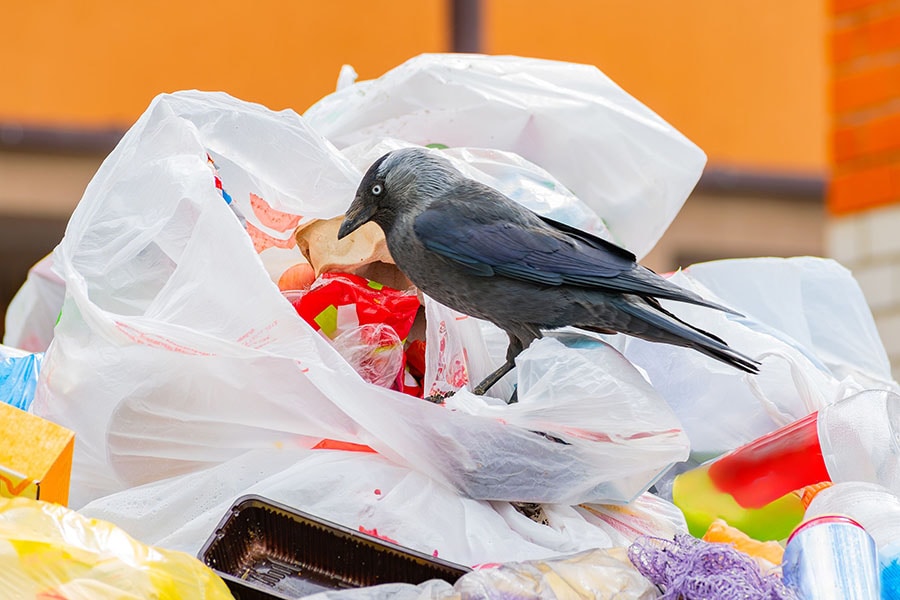
Crows are being driven off the streets of Tokyo by their own cries
The municipality of Adachi has decided to install crow-deterrent loudspeakers to dissuade these birds from attacking the garbage of the 700,000 or so residents who live there
 Tokyo has been waging war on crows since the early 2000s. Image credit: Photography Anton Vakhrushev©
Tokyo has been waging war on crows since the early 2000s. Image credit: Photography Anton Vakhrushev©
Crows are often disliked for the damage they cause in the countryside, as well as in the city. In Tokyo in particular, these birds cause a great deal of damage, attacking the city's garbage bags. This has prompted one of the Japanese capital's city councils to tackle the problem in an unusual way.
The municipality of Adachi has decided to install crow-deterrent loudspeakers to dissuade these birds from attacking the garbage of the 700,000 or so residents who live there. In Japan, residents don't put their garbage in large plastic trash cans, as in many other countries. Instead, they place their waste-filled bags under a sort of protective net, before the garbage collectors pass by. This precautionary measure does little to stop crows from attacking the trash bags, tearing them open and littering the streets as they search for food scraps.
But the loudspeakers are a powerful deterrent. These small devices broadcast recordings of crows' cawing noises. Equipped with infrared detectors, they can switch on as soon as a crow gets too close to a pile of garbage. The bird, frightened by the cries of its fellow creatures, flees in haste, without damaging the garbage bags, as seen in a video posted on YouTube.
This surprising invention comes straight from the laboratories of CrowLab, a specialist company based in Utsunomiya City, Tochigi Prefecture. Over a period of 20 years, CrowLab researchers have studied the behavior of crows, recording more than 10,000 different cawing sounds, according to Japan Today. After hours of listening, they were able to identify and isolate the cries crows make to scare off a potential predator.
These are the vocalizations broadcast by the loudspeakers purchased by Adachi city hall. The municipality tested their effectiveness between June and September 2023, and found that, during this period, garbage destruction dropped considerably near some of the city's waste collection points, reports Japan Today.







